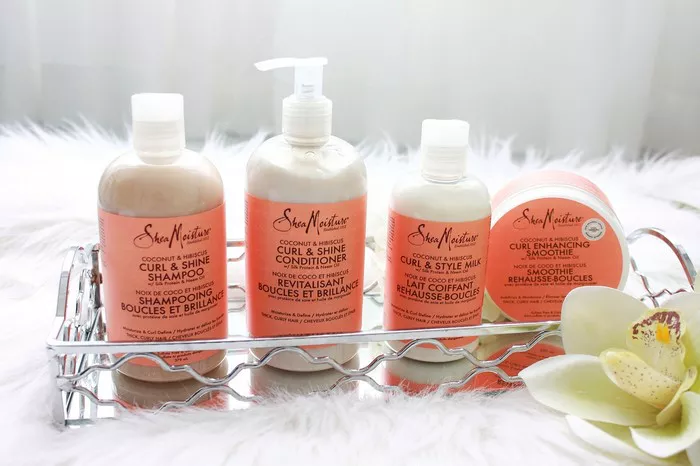In recent years, there has been a growing awareness of the importance of using safe and healthy hair products. Consumers are becoming more mindful of the ingredients they expose their hair and scalp to, realizing that certain chemicals can have detrimental effects on their overall hair health. Understanding what ingredients to avoid in hair products is crucial for maintaining vibrant, strong, and healthy hair. In this article, we will explore common harmful ingredients found in hair products, the reasons for avoiding them, alternative ingredients to consider, product recommendations, label reading tips, and insights from hair care experts.
Explanation of Common Harmful Ingredients
Sulfates: Sulfates, such as sodium lauryl sulfate (SLS) and sodium laureth sulfate (SLES), are commonly used as cleansing agents in shampoos. While they effectively remove dirt and oil from the hair, they can also strip away natural oils, leading to dryness, irritation, and frizz. Additionally, sulfates can be harsh on the scalp, causing sensitivity and even allergic reactions in some individuals.
1. Parabens: Parabens are preservatives used to extend the shelf life of hair products. However, they have been linked to hormone disruption and potential health risks. Studies have suggested that parabens may mimic estrogen in the body, potentially disrupting the endocrine system and contributing to hormonal imbalances.
2. Silicones: Silicones are often added to hair products to provide a smooth, shiny appearance and to help with detangling. While they can offer temporary benefits, silicones can also create a barrier on the hair shaft, preventing moisture from penetrating and leading to dryness and buildup over time. This buildup can weigh down the hair and make it appear dull and lifeless.
Reasons for Avoidance
Avoiding harmful ingredients in hair products is essential for maintaining optimal hair and scalp health. Sulfates can strip the hair of its natural oils, leading to dryness and irritation. Parabens have been associated with hormone disruption, which can have far-reaching effects on overall health. Silicones may provide short-term benefits but can cause long-term damage by preventing moisture from reaching the hair shaft and leading to buildup and dullness.
Alternative Ingredients
Fortunately, there are many safer alternatives to these harmful ingredients that can provide effective results without compromising hair health.
1. Sulfate-Free Cleansers: Look for shampoos that are sulfate-free and instead use gentle cleansing agents derived from natural sources, such as coconut or sugar. These cleansers effectively remove dirt and oil without stripping the hair of its natural oils.
2. Preservative-Free Formulations: Opt for hair products that use natural preservatives, such as vitamin E or essential oils, instead of parabens. These alternatives can help extend the shelf life of products without exposing you to potentially harmful chemicals.
3. Plant-Based Moisturizers: Choose conditioners and styling products that contain moisturizing ingredients derived from plants, such as shea butter, coconut oil, or aloe vera. These natural moisturizers nourish the hair without weighing it down or causing buildup.
Product Recommendations
When shopping for hair products, it’s essential to choose brands that prioritize safety and quality. Here are some recommendations for hair products that do not contain harmful ingredients:
1. SheaMoisture: SheaMoisture offers a wide range of hair care products formulated with natural and organic ingredients. Their sulfate-free shampoos, paraben-free conditioners, and silicone-free styling products cater to various hair types and concerns.
2. Aveda: Aveda is known for its commitment to using plant-based ingredients in its hair care products. Their formulations are free from sulfates, parabens, silicones, and other harmful chemicals, making them a popular choice among those seeking safer alternatives.
3. Maui Moisture: Maui Moisture offers hair care products inspired by the tropical beauty of Maui. Their sulfate-free shampoos and conditioners are infused with exotic ingredients like coconut oil, aloe vera, and shea butter to nourish and hydrate the hair without weighing it down.
Label Reading Tips
Reading product labels is essential for identifying and avoiding harmful ingredients in hair products. Here are some tips to help you make informed choices:
1. Look for Key Phrases: Scan the label for phrases like “sulfate-free,” “paraben-free,” and “silicone-free” to ensure that the product does not contain these harmful ingredients.
2. Check the Ingredient List: Ingredients are typically listed in descending order of concentration. Avoid products that list sulfates, parabens, silicones, and other harmful chemicals near the top of the ingredient list.
3. Research Ingredients: Familiarize yourself with common harmful ingredients and their alternatives. This will empower you to make educated decisions about which products are best for your hair.
Expert Opinions
Hair care experts and dermatologists emphasize the importance of avoiding harmful ingredients in hair products to maintain optimal hair and scalp health.
According to Dr. Nina Sengupta, a board-certified dermatologist, “Sulfates can be particularly harsh on the scalp, leading to dryness, irritation, and even exacerbating conditions like eczema and psoriasis. Choosing sulfate-free shampoos can help alleviate these symptoms and promote a healthier scalp environment.”
Renowned hairstylist and salon owner, Lisa Davis, adds, “Silicones may provide temporary benefits like smoothness and shine, but they can also create a barrier on the hair shaft, preventing moisture from penetrating and leading to long-term damage. Opting for silicone-free styling products can help maintain the health and integrity of the hair.”
In conclusion, being mindful of the ingredients in hair products is essential for maintaining vibrant, healthy hair. By avoiding harmful ingredients like sulfates, parabens, and silicones and opting for safer alternatives, you can support the overall health and well-being of your hair and scalp. Remember to read product labels carefully, prioritize brands that prioritize safety and quality, and consult with hair care experts for personalized recommendations.


